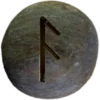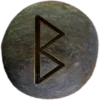Last Updated on June 2, 2025
Table of Contents


Justice and Balance
Týr (pronounced “teer”) stands as one of the most courageous Norse gods. Known for his wisdom and bravery, He plays a vital role in maintaining law and order among gods and men. In Norse mythology, Týr represents justice, honor, and heroic sacrifice. His name connects to the Proto-Germanic Tīwaz and the older Indo-European deity Dyeus, suggesting ancient roots as a sky god. ![]()
The Eddas, particularly the Poetic Edda and Prose Edda, recount Týr’s most famous act—binding the wolf Fenrir. Fenrir posed a grave threat to the gods. The Æsir attempted to shackle Fenrir multiple times, but only the magical ribbon Gleipnir succeeded. Fenrir agreed to the binding only if a god placed their hand in his jaws as a show of trust. He volunteered, knowing the wolf would bite down once trapped. As predicted, Fenrir snapped his jaws shut, severing his hand. From then on, he was depicted with a single hand, symbolizing his willingness to sacrifice for the greater good.
Týr is often associated with war but not in the same way as Thor or Odin. While Thor embodies strength and Odin relies on strategy, his champions fair combat and the just application of force. His domain includes formal duels, treaties, and the upholding of honor on the battlefield.
Despite his valor and significance, Týr’s role diminished in later Norse myths, overshadowed by Odin’s rise as a war deity. Scholars believe he may have once been a chief god in earlier Germanic traditions, later supplanted as religious practices evolved.
His name survives in modern language through Tuesday, derived from Old English “Tiwesdæg,” meaning “Tiw’s Day.” This linguistic legacy underscores his enduring impact on culture.
Týr remains a god of balance, embodying bravery tempered by reason. His tales remind us that justice often requires great personal sacrifice.
Elder Futhark Runes Associated with Týr
The Tiwaz (pronounced “TEE-wahz”) Elder Futhark rune directly represents Týr and his qualities of justice, honor, and self-sacrifice. This rune reflects his unwavering commitment to fairness and courage. The Sowilō rune (pronounced “SOH-wee-loh”) also relates to Týr, symbolizing clarity, success, and victory. Together, these runes illustrate his role as a bringer of light, order, and triumph in the face of adversity. ![]()
His Importance to Asatruar
Týr serves as a powerful example of courage, justice, and selflessness for Asatruar. His stories inspire acts of bravery and integrity. His willingness to sacrifice for the greater good encourages a sense of duty and honor. As a figure who upholds law and fairness, he remains a guiding force for those who seek to live with purpose and moral clarity.


